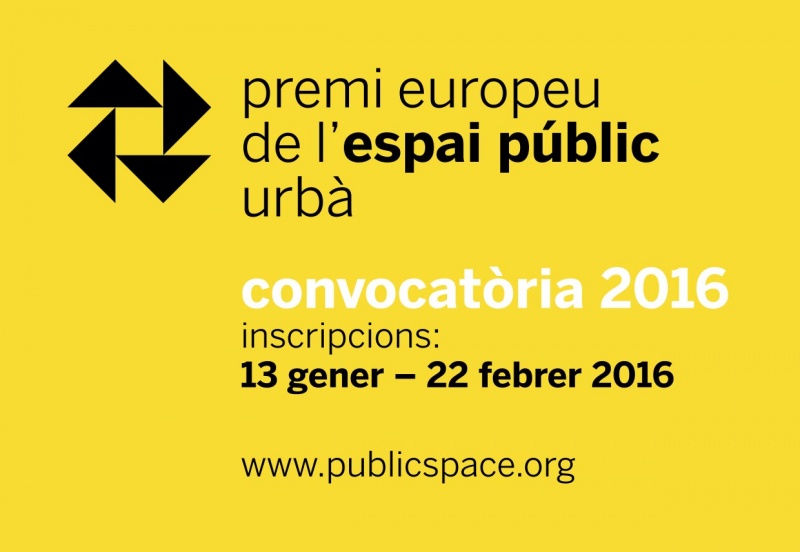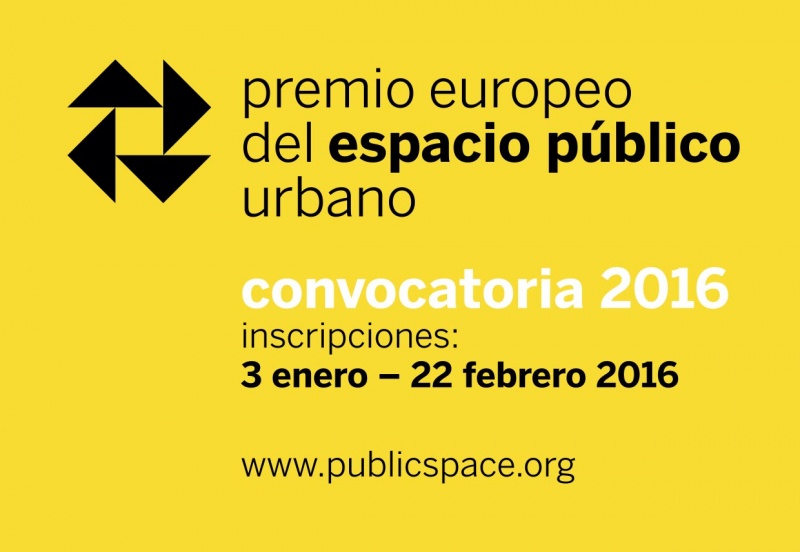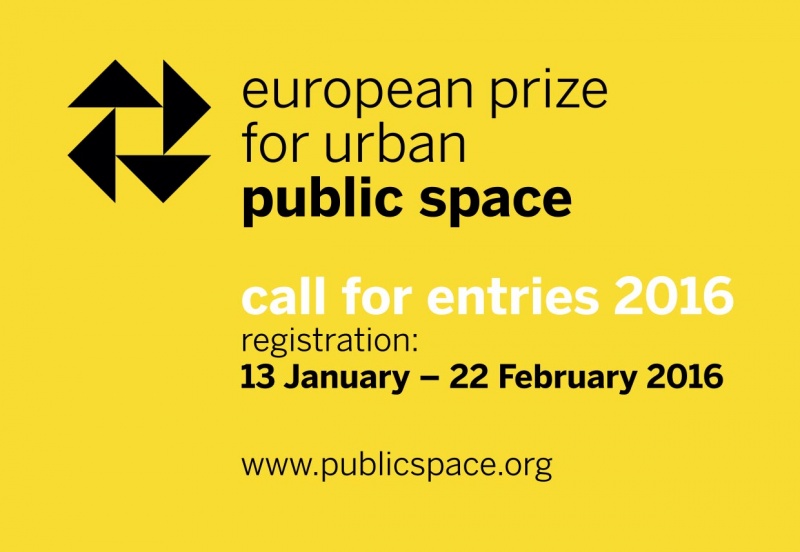The Prize organisers call for entries, namely all kinds of interventions which, completed between 2014 and 2016, create or recover the urban spaces we share, or improve their democratic quality
RULES
SCHEDULE
INTERNATIONAL JURY
ORGANIZERS
BOARD OF EXPERTS
PRESS
The Prize organisers announce the call for entries for the Ninth European Prize for Urban Public Space (2016). This biennial honorary award has been offered since 2000 in order to recognise, encourage and publicise examples of good practice in the ways in which the public spaces of European cities respond to the many challenges they presently face. Subject to processes of exponential growth and transformation, these cities now face a situation where the democratic ideal which, for millennia, has sought to achieve coexistence in equality in conditions of plurality, is endangered. Segregation, inequalities, unchecked urban construction, unsustainable squandering and serious shortfalls in making effective the right to the city are problems which become palpably manifest in public spaces and this is precisely the front from which they can be combatted with the best possible results.True to this cause, the Prize embraces all kinds of interventions which create, recover or improve the democratic quality of the urban spaces we share, and is jointly awarded to both the authors of the projects and their promoters. All works presented for the present award need to have been carried out in European cities between 2014 and 2016. Registration is gratis and may be done between 13 January and 22 February on the Prize website, where the schedule and rules can be downloaded, together with the necessary documents and conditions for participation.
This year’s Jury consists of ten members presided over by the architect Enric Batlle who represents the Centre of Contemporary Culture of Barcelona (CCCB). As on other years, the Jury for the 2016 award includes the directors of the other six convening institutions: Peter Cachola Schmal (Deutsches Architekturmuseum, DAM, Frankfurt, a Jury member since 2010), Matevž Čelik (Muzej za Arhitekturo in Oblikovanje, MAO, Ljubljana, a member since 2014), Juulia Kauste (Arkkitehtuurimuseo, Helsinki, a member since 2012), Francis Rambert (La Cité de l'Architecture et du Patrimoine, Paris, a member since 2006), Dietmar Steiner (Architekturzentrum Wien, AzW, Vienna, a member from 2002 to 2012) and Ellis Woodman (The Architecture Foundation, AF, London, who will be a jury member for the first time this year). A new feature of this year’s Jury is that it will also include two members who do not represent the convening institutions, the architecture historian and critic Hans Ibelings (Amsterdam) and the Polish architect Ewa P. Porębska (Warsaw). The Jury members will be assisted by the Secretary David Bravo who, appointed by the CCCB, does not have a vote. He will draw up a record of the sessions in which the prize-winning works are selected. The Jury is to meet in Barcelona on 28 and 29 April in order to assess the works presented and make their decision, which will not be made public until the prize-giving ceremony which is to be held at the CCCB on June.
The 2016 Prize has the support of a Committee of Experts, consisting of forty members from fifteen European countries. They will recommend outstanding works carried out in their respective regions to the organisers so that the authors and promoters can be invited to submit these projects for the award. The Prize thus guarantees good territorial representation of the candidate works and ensures that outstanding projects will not be left out. Another first in the 2016 Prize is that it explores the advantages of citizen participation by means of suggesting candidates. Once launched on Twitter, the #MyPublicSpace campaign will invite users of the social networks to nominate works that have transformed and improved their neighbourhoods and cities as a way of encouraging the authors of these works and their promoters to submit them for the Prize.
David Bravo │ Translation by Julie Wark





